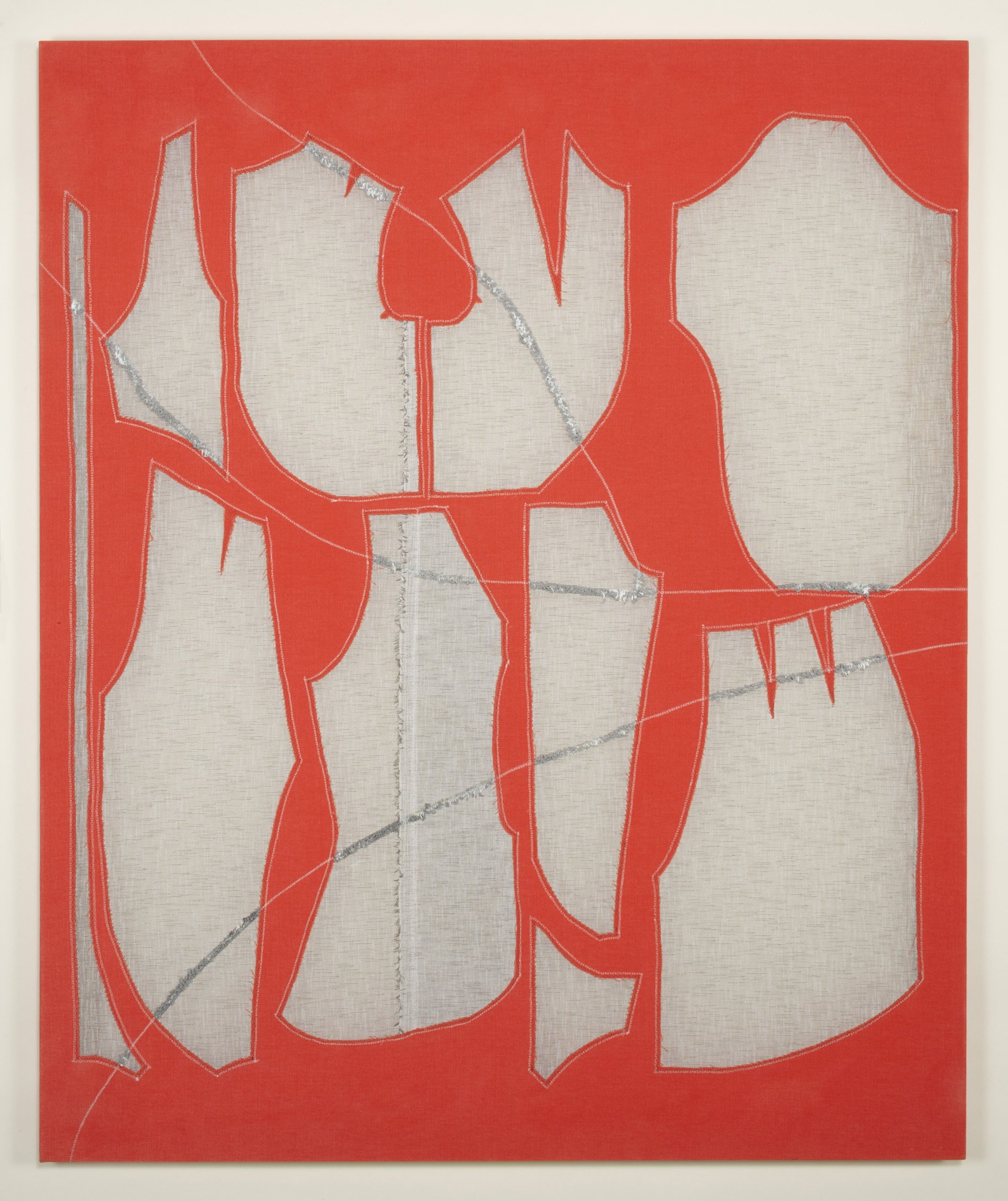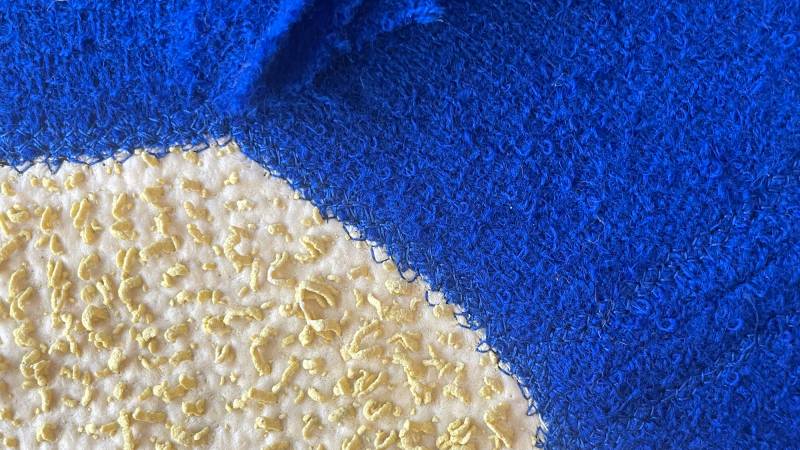I truly don’t think we use the word “extrusion” enough — its onomatopoeic quality perfectly captures the squishy nature of its meaning. But thanks to Tana Quincy Arcega’s Spirit of Scrappiness, a goopy yet delicate collection of abstract textile works at re.riddle gallery (now housed within Minnesota Street Project), I’ve been thinking about extrusion a lot.
The work on view, made with cotton, PVC mesh, shade cloth, spackle, grout and paint, doesn’t conceal its careful modes of construction, but there’s still a bit of chance at play. As Arcega strategically pushes grout and spackle through grids of varying density (a whole continuum from tightly woven fabric to looser mesh), it gloops out in organic, self-determined ways. Some extrusions resemble the delightful squish of Play-Doh going through a garlic press. Others are more solid, or mere bubbles along an otherwise taut, stretched and stitched surface.
My favorite pieces in the show were some of the most simple in terms of materials. In Tulip Garment, a vermillion piece of cotton is stitched against a gauzy backing, allowing the work’s stretcher bars to show through. Cut-out shapes arranged across the red fabric look like the remnants of a garment pattern (a better tailor than I might be able to extrapolate a three-dimensional design). Darts and curves suggest the body that missing fabric might enclose, while lines of stitching become the backbones for short spikes of spackle.

Arcega grew up in her mother’s fabric store, and her resourceful facility with piecing together colorful scraps into a greater, balanced whole is evident. But the work is most exciting when it interrupts its tidiness and flatness with pockets of unruliness. In Invisi Garment, grout pushed through PVC mesh (hemmed in by thick wool) becomes fabric-like again, looking more like paint-hardened terry cloth than anything else. Referencing a DIY aesthetic of household fixing and making, Arcega cannily bridges soft, domestic arts with the grittier work of laying tile and patching holes.
I suggest walking through this show with your hands in your pockets — it’s difficult to resist the urge to reach out and touch.



